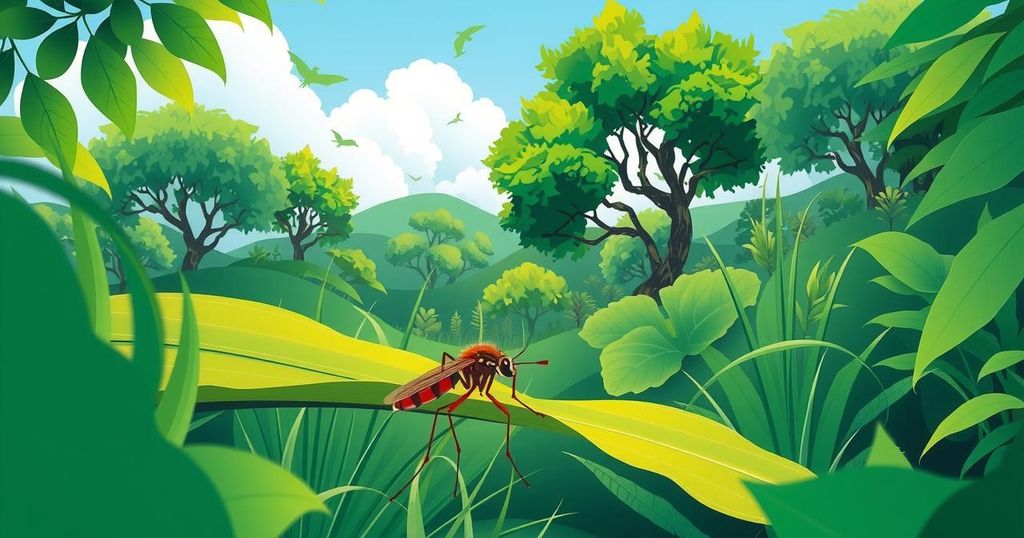Climate change is triggering a rise in malaria cases across Africa, particularly in areas previously unaffected, due to increasing temperatures and altered ecosystems. Experts warn of significant public health risks, with the World Health Organization forecasting numerous additional malaria deaths in the coming decades. They urge vigilance in malaria control efforts, highlighting the influence of environmental changes and human activities on disease patterns.
Climate change is significantly impacting public health in Africa, with experts noting an alarming rise in malaria and other mosquito-borne diseases, such as dengue fever. This situation is attributed to increasing temperatures, which exacerbate existing health challenges. Specialists, including Dorothy Memusi, a former deputy director of the malaria division in Kenya’s Ministry of Health, emphasize that climate change is enabling these diseases to spread to areas previously unaffected.
Memusi cites studies indicating that malaria cases in Kenya’s highland regions, particularly the Rift Valley, are on the rise. This increase is linked to minor climatic changes that have altered the disease’s geographical distribution. Memusi commented, “The resurgence of malaria in the east African highlands has shown how small changes in climate can influence the geography of some tropical diseases.”
A December report from the World Health Organization warns that climate change could lead to an estimated additional 550,000 malaria-related deaths in Africa between 2030 and 2049. Memusi explained that the malaria parasite requires specific temperature conditions to mature effectively, with research indicating that at around 18°C, the parasite takes 51 days. Warming in highland regions could drastically reduce this maturation time, increasing transmission rates.
Temperature changes have profound implications for malaria transmission, as established by a joint study in 2004. The research highlights that variations in temperature, rainfall, and humidity promote mosquito breeding, especially at higher altitudes, where conditions previously deterred malaria. Memusi stated, “A rise in temperature, rainfall, and humidity is likely to cause a proliferation of the malaria-carrying mosquitoes at higher altitudes.”
Despite ongoing studies, Memusi advises caution regarding the quantification of climate change’s effects on malaria, noting the significance of demographic factors, human activities such as deforestation, and issues like insecticide and drug resistance. Willis Akhwale, a medical doctor and special adviser to the Kenya End Malaria Council, argues that increasing malaria cases also reflect drug resistance and infrequent pesticide usage in breeding areas. He stresses the importance of surveillance and preparedness in malaria control strategies, alongside timely diagnosis and effective treatments.
In conclusion, climate change is increasingly linked to the resurgence of malaria in Africa, altering disease patterns and expanding transmission into previously unaffected regions. Experts emphasize the urgent need to address these climatic impacts and encourage ongoing surveillance, effective treatments, and control strategies to mitigate the rising malaria burden. The interplay between environmental changes and human factors warrants attention to adapt health systems accordingly.
Original Source: www.chinadaily.com.cn




